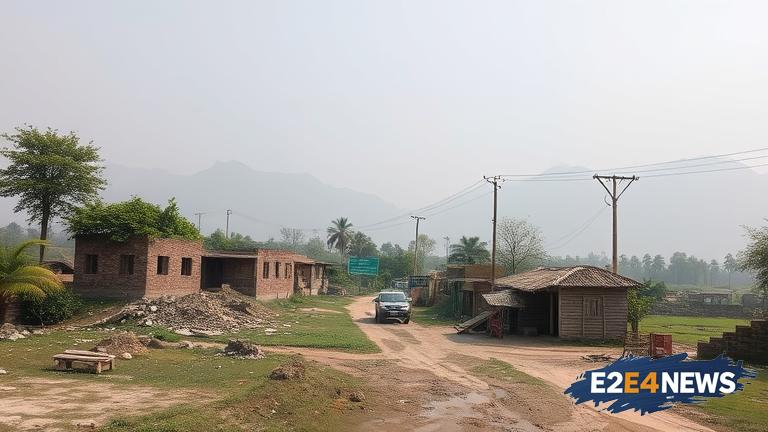South Punjab, a region in the southern part of Pakistan’s Punjab province, is facing a multitude of challenges that have left it vulnerable to natural disasters. The region has been plagued by poor infrastructure, inadequate healthcare facilities, and a lack of government support, making it difficult for residents to cope with the aftermath of disasters. The area is prone to flooding, droughts, and heatwaves, which have devastating effects on the local population. The lack of proper drainage systems and infrastructure has exacerbated the problem, leaving many areas waterlogged and inaccessible. The government’s neglect of the region has been criticized by locals, who feel that their concerns are being ignored. The region’s economy is primarily based on agriculture, which is heavily affected by natural disasters. The frequent floods and droughts have resulted in significant losses for farmers, who are struggling to make ends meet. The healthcare facilities in the region are also inadequate, making it difficult for people to receive proper medical care in the event of a disaster. The region is home to several major rivers, including the Indus and Chenab, which are prone to flooding. The government has been accused of not taking adequate measures to prevent flooding, despite warnings from experts. The lack of proper planning and infrastructure has resulted in significant losses for the local population. The region is also home to several major cities, including Multan and Bahawalpur, which are struggling to cope with the challenges posed by natural disasters. The government has announced several initiatives to improve the infrastructure in the region, but the progress has been slow. The locals are demanding more action from the government to address the challenges faced by the region. The region’s vulnerability to natural disasters has also had a significant impact on the local economy. The frequent disasters have resulted in significant losses for businesses, which are struggling to recover. The government has been accused of not providing adequate support to the affected areas, despite promises to do so. The region is in dire need of investment in infrastructure and healthcare facilities to mitigate the effects of natural disasters. The government needs to take immediate action to address the challenges faced by the region, including improving the drainage systems, healthcare facilities, and infrastructure. The locals are hoping that the government will take their concerns seriously and take concrete steps to address the challenges posed by natural disasters. The region’s future depends on the government’s ability to provide adequate support and infrastructure to mitigate the effects of natural disasters. The government needs to work with the local population to develop a comprehensive plan to address the challenges faced by the region. The plan should include measures to improve the infrastructure, healthcare facilities, and drainage systems, as well as provide support to the affected areas. The government should also take steps to prevent flooding and other natural disasters, including building dams and improving the water management systems. The region’s vulnerability to natural disasters is a major concern, and the government needs to take immediate action to address the challenges faced by the region.
